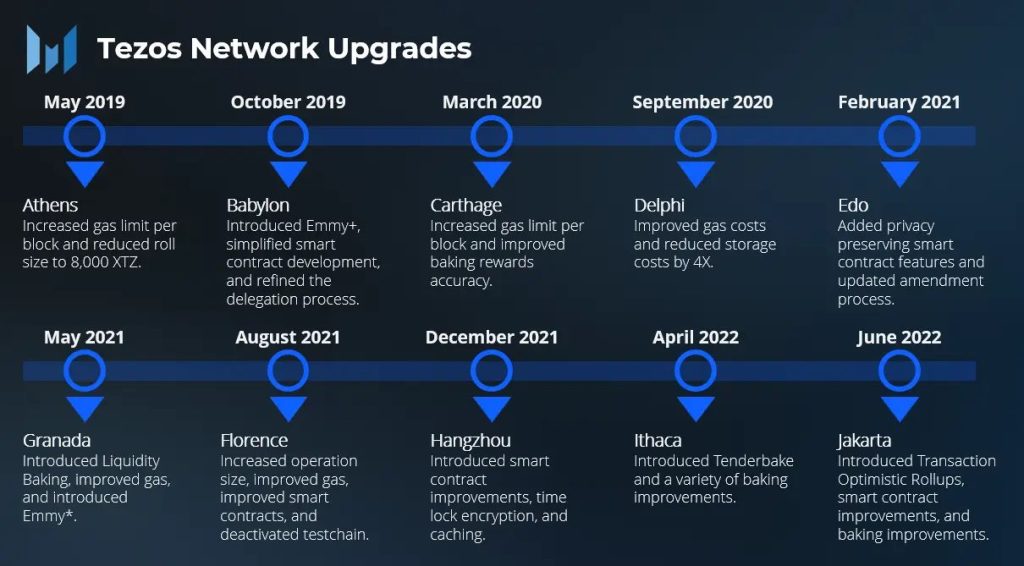Key Points:
- Tezos validators set to vote on protocol upgrades aimed at reducing latency and shortening finalization times to 10-second block intervals.
- Proposals include activation of Delphi Applied Layer (DAL) to boost network throughput and Layer 2 scalability.
- Community faces choice between comprehensive overhaul (Paris B) or incremental activation through on-chain voting (Paris A) for PoS foundation enhancements.
Tezos validators are preparing to cast their votes on a recently unveiled protocol upgrade proposal.

This proposal holds the promise of significantly enhancing network performance by addressing key issues such as latency reduction and the shortening of finalization times to a remarkable 10-second block time.
Central to the proposed upgrade is the activation of Delphi Applied Layer (DAL), a feature aimed at augmenting network throughput and Layer 2 scalability. By incorporating DAL into the protocol, Tezos aims to unlock new levels of efficiency and scalability, positioning itself as a leading player in the blockchain space.
Read more: What is Bitcoin Halving? Why is this event of interest?
DAL Activation Key to Tezos Network Optimization

The proposals under consideration, dubbed Paris A and Paris B, present distinct approaches to achieving these ambitious objectives. Paris B advocates for a comprehensive overhaul of the Proof of Stake (PoS) foundation, bundling the activation of DAL and other enhancements. In contrast, Paris A offers a more nuanced strategy, providing the flexibility to activate these features later through a dedicated on-chain voting mechanism.
The Tezos community finds itself at a pivotal juncture, tasked with selecting the most suitable path forward to propel the network into a new era of performance and scalability. With both proposals offering compelling visions for the future of Tezos, stakeholders must carefully weigh the merits of each approach before casting their votes.
The outcome of this vote holds significant implications for the Tezos ecosystem and its stakeholders. A successful implementation of the proposed upgrades promises to bolster Tezos’ position as a robust and versatile blockchain platform, capable of supporting a wide array of decentralized applications and use cases.
| DISCLAIMER: The information on this website is provided as general market commentary and does not constitute investment advice. We encourage you to do your own research before investing. |






















